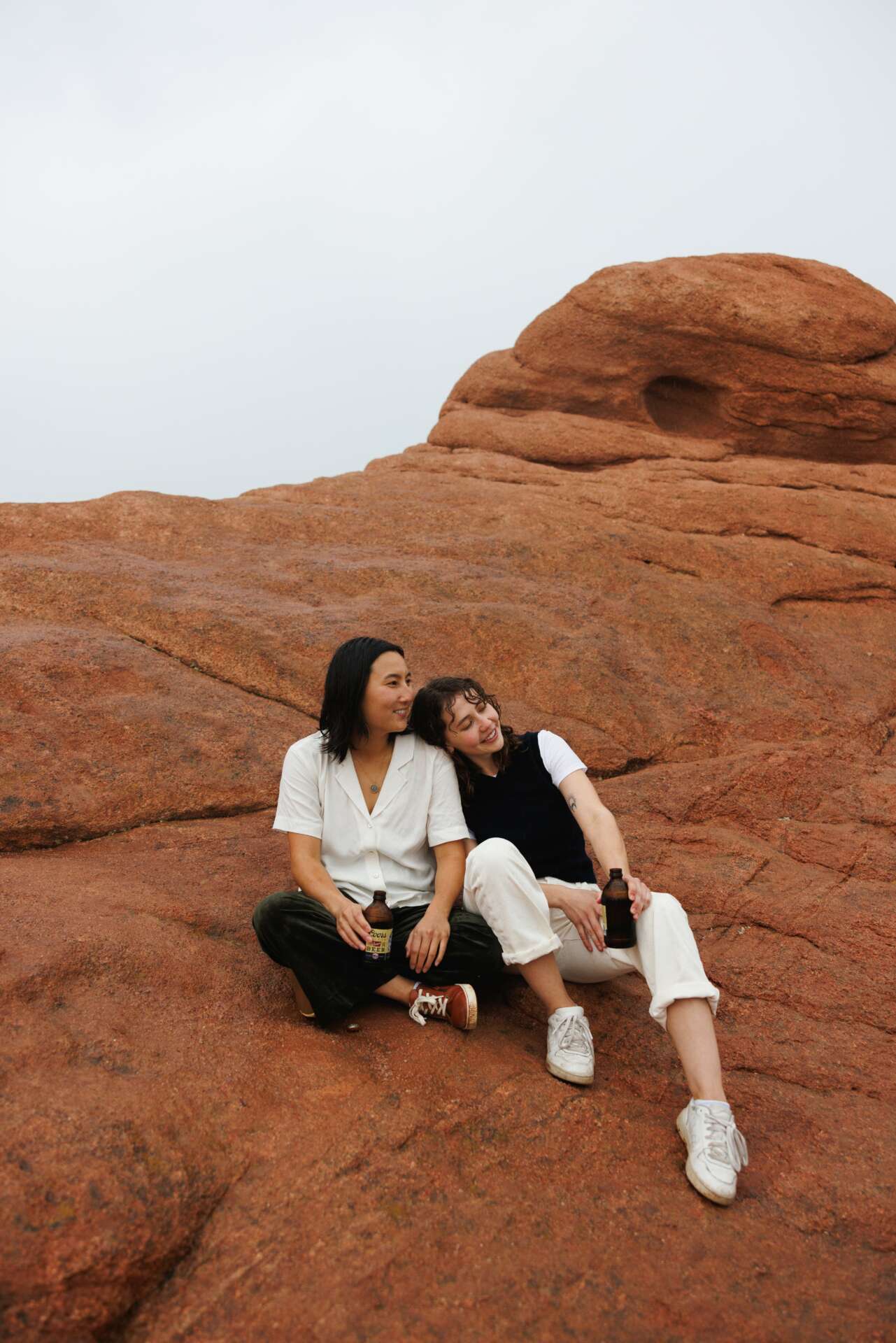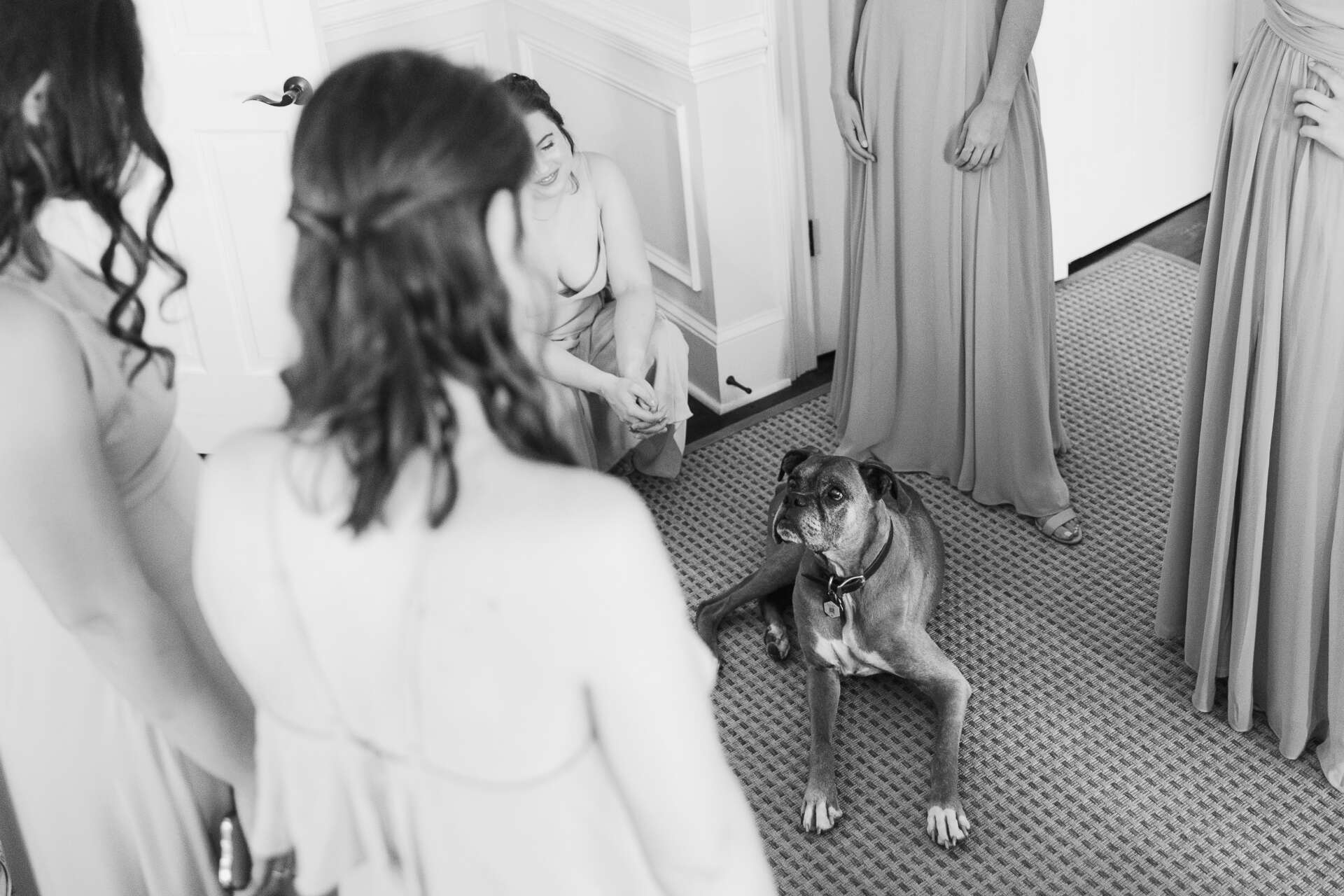Alright – so today we’ve got the honor of introducing you to Kara Hunter. We think you’ll enjoy our conversation, we’ve shared it below.
Kara, looking forward to hearing all of your stories today. Can you talk to us about serving the underserved.
When I first started in photography, I heard about a painful experience someone had with another photographer. An LGBTQ+ couple reached out to this photographer, as they had been following them for awhile and were so excited to finally be in contact. That excitement quickly turned to pain as the photographer of their dreams told them they do not accept same-sex couples as clients. And, on top of that, this photographer decided to make it about them and how painful that experience was to them.
From there, I started noticing more and more ways LGBTQ+ couples are being underserved in this industry. Gendered getting ready areas – the bright pink bridal suite lined with mirrors vs. the mahogany groom’s room filled with games and bourbon. Over the top bachelor and bachelorette party themes. Inquiry forms that spoke only to heterosexual couples with spots for the names of the bride and groom. Instagram posts that made jokes about how uninvolved the groom is while the bride does all the work. It was everywhere. An industry that was supposed to be about celebrating love had amplified the idea of heteronormativity to its fullest extent.
In general, I realized that the wedding industry is truly one of the most heteronormative industries in the world. Which, unfortunately, makes sense given same-sex marriage was only legalized in 2015. The industry is still catching up, but it has a long way to go.
And I, as a member of the LGBTQ+ community myself, want to help this industry get there. I prioritize capturing the love of my couples in the truest form by making sure they feel absolutely comfortable in front of my camera. I’ve implemented inclusivity throughout all my communication with clients, from initial website visits to posing approaches. I’m constantly talking to clients and other photographers about how we can improve, in hopes that one day this industry can reach the level of inclusivity where the ‘do you accept same-sex couples’ isn’t a question that has to be asked.
Because love is love, and the wedding industry should be a shining example of that.

Kara, love having you share your insights with us. Before we ask you more questions, maybe you can take a moment to introduce yourself to our readers who might have missed our earlier conversations?
I’m a wedding photographer based in Atlanta, Georgia (but I travel anywhere in the world!). I’ve been a photographer for many years, since my grandpa shared his love of photography with me. My favorite days are still those where we take out our cameras together to go shoot wildflowers in North Georgia.
In my photography, I prioritize capturing those true, emotional moments. Whether it’s you laughing with old friends during the reception or sneaking a kiss with your new spouse after the ceremony, I’m here to capture it all. I prioritize making sure the photography is capturing your day and not having a day for the photos.
I specialize in making sure those who want to go against old school wedding traditions feel comfortable and supported. Many current traditions are outdated, and I encourage my couples to take a look at those traditions and know what speaks to them. Want to walk down the aisle together? Great. Want to skip the church and get married at your favorite brewery? Awesome.
The day is about your love, and I want to make sure the day and the photos reflect that.


What do you find most rewarding about being a creative?
The responses I hear when my clients receive their galleries are always the most rewarding part. One particular example stands out to me:
One of the grandmothers was supposed to be in attendance at the wedding, but last minute wasn’t able to make the trip. She had moved into hospice, and she was heartbroken to have missed her granddaughter’s wedding.
After sending their photos, the couple reached out to let me know that their grandmother had been looking through the album every single day, saying that she felt like she had been there. They were going to visit her soon, and they hooked the photos up to the TV in her room so that she could view them even larger. As someone who is very close to my grandmother, it really hit me hard.
Sometimes it’s not about making sure the couple can relive their day – sometimes it’s about making sure the people who couldn’t be there feel like they were.


What’s a lesson you had to unlearn and what’s the backstory?
When I first started in wedding photography, I tried to learn all the tricks behind making photos – whisper your favorite Taco Bell order in the sexiest voice, draw something on your partner’s cheek with your nose.
But as I tried to do them, it felt weird and forced. I felt uncomfortable, and I could see that my clients felt uncomfortable as well.
So I pivoted. I tried to unlearn what the photography industry had taught me – that all that mattered was the end result in the photos & it didn’t matter what it took to get there. That you had to direct every single moment.
I remembered that photos are representative of an experience, and that experience should be fun. You should be able to look at your photos and remember your genuine laugh, not weird prompts that made you feel uncomfortable.
I reversed course and leaned into just making my couples comfortable. I direct couples, but I don’t force anything. I ease them into the session, helping it feel like a date that I tagged along on.
I want to capture real experiences, and it took some rewiring of my process to make that happen.


Contact Info:
- Website: www.karahunterphotography.com
- Instagram: @karahunter_photography


